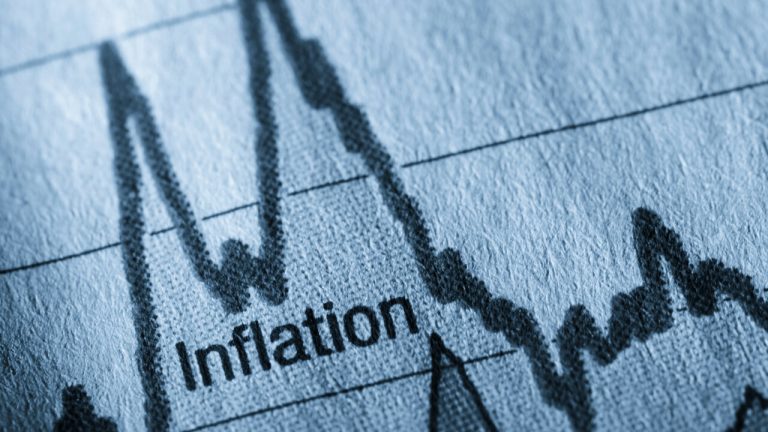
Nigeria’s inflation has defied all efforts by the government, rising once again in June to a record 34.19%, according to the latest report from the Nigerian Bureau of Statistics (NBS).
The headline inflation was up from 33.95% in May 2024, marking an increase of 0.24 percentage points within a month and a substantial year-on-year jump of 11.40 percentage points from the 22.79% recorded in June 2023.
The report highlighted that on a month-on-month basis, the headline inflation rate in June 2024 was 2.31%, a 0.17 percentage point rise from the 2.14% recorded in May 2024.
Register for Tekedia Mini-MBA edition 19 (Feb 9 – May 2, 2026): big discounts for early bird.
Tekedia AI in Business Masterclass opens registrations.
Join Tekedia Capital Syndicate and co-invest in great global startups.
Register for Tekedia AI Lab: From Technical Design to Deployment (next edition begins Jan 24 2026).
“The percentage change in the average Consumer Price Index (CPI) for the twelve months ending June 2024 over the previous twelve-month period was 30.00%, showing an 8.45 percentage point increase compared to the 21.54% recorded in June 2023,” it said.
Urban areas are feeling the brunt of the inflationary pressures more acutely. The urban inflation rate in June 2024 was 36.55% on a year-on-year basis, 12.23 percentage points higher than the 24.33% recorded in June 2023. On a month-on-month basis, urban inflation rose to 2.46% in June 2024, up from 2.35% in May 2024.
The NBS said, “The twelve-month average for urban inflation was 32.08%, reflecting a 9.70 percentage point increase from the previous year.”
In contrast, rural areas, while still experiencing significant inflation, have slightly lower rates. The rural inflation rate in June 2024 was 32.09% year-on-year, up by 10.71 percentage points from the 21.37% recorded in June 2023.
“On a month-on-month basis, rural inflation increased to 2.17% in June 2024 from 1.94% in May 2024,” the report said. It added that “the twelve-month average for rural inflation was 28.15%, a rise of 7.39 percentage points from June 2023.”
Food inflation remains the most concerning aspect of Nigeria’s economic woes. The food inflation rate in June 2024 was a staggering 40.87% year-on-year, up by 15.62 percentage points from 25.25% in June 2023.
The increase in food prices was driven by rising costs of essential items such as millet, garri, guinea corn, yams, water yams, coco yams, groundnut oil, palm oil, and various fish products.
On a month-on-month basis, the food inflation rate was 2.55% in June 2024, a 0.26 percentage point rise from 2.28% in May 2024.
The NBS attributed this increase primarily to higher prices for groundnut oil, palm oil, water yams, coco yams, cassava, tobacco, fresh catfish, croaker, mudfish, and snails.
Economists have noted that Nigeria’s rising food inflation is a direct consequence of insufficient local food production, with the nation restricting food importation.
The core inflation rate, which excludes the prices of volatile agricultural produce and energy, stood at 27.40% year-on-year in June 2024, up by 7.34 percentage points from 20.06% in June 2023.
“The highest increases were observed in housing rentals, intercity bus journeys, motorcycle journeys, accommodation services, medical consultation fees, laboratory services, X-ray photography, and pharmaceutical products,” the report said.
On a month-on-month basis, the core inflation rate was 2.06% in June 2024, slightly up from 2.01% in May 2024. The average twelve-month annual inflation rate was 24.06% for the twelve months ending June 2024, up by 5.59 percentage points from 18.47% in June 2023.
The NBS report also highlighted significant regional variations in inflation rates. Year-on-year, the highest inflation rates were recorded in Bauchi (43.95%), Kogi (39.91%), and Oyo (39.15%), while Borno (25.90%), Benue (27.52%), and Katsina (29.21%) had the slowest rise. Month-on-month, the highest increases were in Yobe (3.79%), Abuja (3.45%), and Ondo (3.38%), while Nasarawa (0.71%), Osun (1.19%), and Kano (1.27%) recorded the slowest rise.
In terms of food inflation, the highest year-on-year rates were observed in Edo (47.34%), Kogi (46.37%), and Cross River (45.28%), while Nasarawa (34.31%), Bauchi (34.78%), and Adamawa (35.96%) had the slowest rise. Month-on-month, the highest increases were in Yobe (4.75%), Adamawa (4.74%), and Taraba (4.12%), while Nasarawa (0.14%), Kano (0.96%), and Lagos (1.25%) recorded the slowest rise.
In response to the worsening food crisis, the government has been compelled to reverse its earlier decision not to import food. Last week, the federal government announced plans to allow duty-free importation of food items such as maize, rice paddy, and wheat for 150 days to stabilize market prices.
This move, while necessary to address the immediate food shortages, has sparked controversy among local farmers and agricultural associations, who fear it will undermine domestic production efforts.
However, economists believe that the persistent increase in food prices is a clear indicator of the challenges the country faces in local food production. Many note that the Nigerian agricultural sector is struggling to keep up with demand, and this has forced prices to skyrocket.
With headline inflation at 34.19% and food inflation at 40.87%, Nigeria faces a critical challenge in balancing immediate food needs with long-term agricultural sustainability.
Stakeholders in the agricultural sector believe that while the government’s recent decision to allow food imports may offer temporary relief, it underscores the urgent need for a more robust and sustainable approach to food production and economic stability.
They note that investing in agriculture, supporting farmers with better access to resources, and implementing policies that promote self-sufficiency are essential steps to ensure long-term food security and economic stability in Nigeria.



